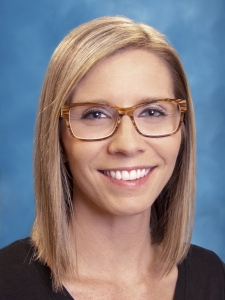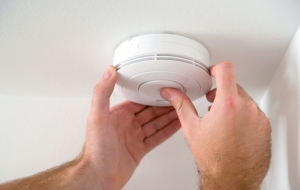By JENNIFER CIPRIANO, BSN, RN, CMSRN

Are you prepared if a fire occurs in your home?
If a fire starts in your home, you may have as little as 2 minutes to escape.
A recent survey by the American Red Cross shows that about 80% of Americans believe everyone in their household knows what to do in a fire, but less than half have a plan in place. Follow these top tips for fire safety to ensure that you and your loved ones stay safe:
- Install smoke alarms: Smoke alarms are a family’s first indication of a fire and once the alarm sounds, a fire can spread quickly leaving little time to escape. These should be installed on every level of your home as well as inside bedrooms and outside sleeping areas.

- Test smoke alarms: These should be tested monthly and if they are not working, change the batteries. Working smoke alarms cut the chances of dying in a house fire in half.
- Have an escape plan: Make a plan and involve all family member or residents of the household. The plan should include a safe meeting point outside the home.
- Practice your plan: Commit to practicing your plan every six months. When you practice, have both daytime and nighttime drills. (Give your kids a head’s-up the day of the drill so they are not totally surprised.)
- Discuss risky habits: Cooking is the leading cause of home fires. Discuss using back burners, turning pot handles inward, keeping items, such as towels, away from the stove and setting timers for cooking. Additionally, ban lit candles in bedrooms and near pets and always extinguish them before going to bed, keep your washer and dryer in good condition and remove lint regularly after each use. Do not run the dryer overnight or when you are away from home.
- If a fire occurs in your home: GET OUT, STAY OUT and CALL FOR HELP. Never go back inside for anything or anyone.
In need of smoke detectors? Many fire departments provide smoke detectors free of charge and also offer installation assistance if needed. Contact your local fire department for more information.
Sources: American Red Cross, National Safety Council
About the Author
Jennifer Cipriano, BSN, RN, CMSRN, is the Trauma Continuum of Care Coordinator for Lakeland Regional Health and is a Certified Child Passenger Safety Technician.
